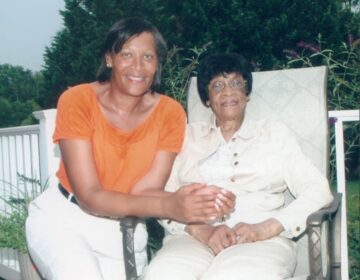Delaware woman’s fight for supplemental insurance [video]
A Delaware woman whose job has forced her to put her life on the line is now fighting for her life medically and fighting to get the state to require insurance companies to cover the 20 percent of her medical bills not covered by Medicare.
Heather Block’s life has been an adventure. She’s worked with the State Department, helping run elections in Kosovo and Azerbaijan, and assisted the Drug Enforcement Agency in Colombia. “I ended up working on elections in Iraq and counter narcotics in Afghanistan,” says Block. “My very last job that I was working last year, I was running a project to monitor all of the aid in Iraq.”
Cancer diagnosis
And now, after a lifetime of helping others work through challenges in some of the world’s most dangerous places, Block is facing what will likely be the final challenge of her life: breast cancer.
“When you lead a life that is a little different than the average person, you do expect that is how you’re going to end up dying.” Block was recently diagnosed with metastatic breast cancer. “The doctors have said statistically women with metastatic breast cancer have a 20 percent chance of living 5 years.”
With her cancer diagnosis, Block can no longer work, which means she’s now eligible for Medicare. which covers 80-percent of her medical expenses, but she’s been unable to get supplemental insurance to cover the remaining 20-percent, which might not sound like that much, but really adds up for cancer patients.
“I have had part of my liver removed and that bill was several hundred thousand dollars. So 20 percent of that along with my regular medications that I’m on, on a regular basis and seeing oncologists and getting CAT scans. It is beyond the reach of any middle class person that I know.”
Key ally
Block has taken her plight to the General Assembly for help, and she has a key ally in her effort to convince lawmakers in state House Speaker Pete Schwartzkopf. Block helped run his first campaign for the state House in 2002.
“She has seen more things than you and I ever want to see,” says Schwartzkopf, D-Rehoboth. “She spanned her lifetime into a short lifespan, but she has seen a lot of things. Some things that we will never see. She has done a lot to reach out to a lot of kids, a lot of women in foreign countries and that’s who she is.”
Twenty-two states require insurers to offer this supplemental Medigap coverage Block is looking for, but Delaware isn’t one of them.
Block says she’s not looking for a handout, “I want to buy my policy and pay for it myself in order to continue to have health coverage. Unfortunately, the way that the system works in Delaware is they can offer you a policy, but they don’t have to. And the premiums can be exorbitant.”
She’s been meeting with lawmakers in hopes of getting a bill passed this year to require coverage with manageable premiums. And while having a friend in the speaker’s chair helps, it’s no guarantee something will get done.
“Everyone I know that she’s talked to understands her place, understands her issue and wants to help,” says Schwartzkopf. “We’re just waiting for language to come from the Insurance Commissioner, so we’ll see what happens there.”
While the Insurance Commissioner’s Office is working on a bill to address the issue, it’s not clear how that measure would address the coverage requirements or affordability concerns that Block has.
Running out of time
Block’s ultimate goal is to get coverage so she can stay in her home, avoid bankruptcy, and fight cancer with dignity. “I am very optimistic, but I was called numerous names throughout my career and one of them was bulldozer. The idea is that I need to make this happen. I have to do this while I feel healthy enough to do it. This is the session, this is all I’ve got.”
Schwartzkopf says after years of fighting to improve the lives of people around the world, “Her final fight is on the home front here.” He says while he’s personally connected to Block, he wants to help not just her, but anybody else in her situation. “If there is anything that we can do, I’d like to help try to do it.”
It’s not clear how many people in Delaware are in the same boat. As of 2011, there were nearly 28,000 Delawareans under the age of 65 who are on Medicare; 10,690 of those are getting state medical assistance to cover the 20 percent gap that Medicare doesn’t pay. It’s not known how many of the remaining 17,000 are getting supplemental coverage through a spouse’s policy or some other method.
While the number of state residents are affected may be small, for those like Block, the impact on their life is huge. If nothing gets done, Block and others like her could be forced to spend all their assets on medical bills, then possibly be forced to declare bankruptcy. If that happens, their medical bills would then be passed on to the state.
WHYY is your source for fact-based, in-depth journalism and information. As a nonprofit organization, we rely on financial support from readers like you. Please give today.




